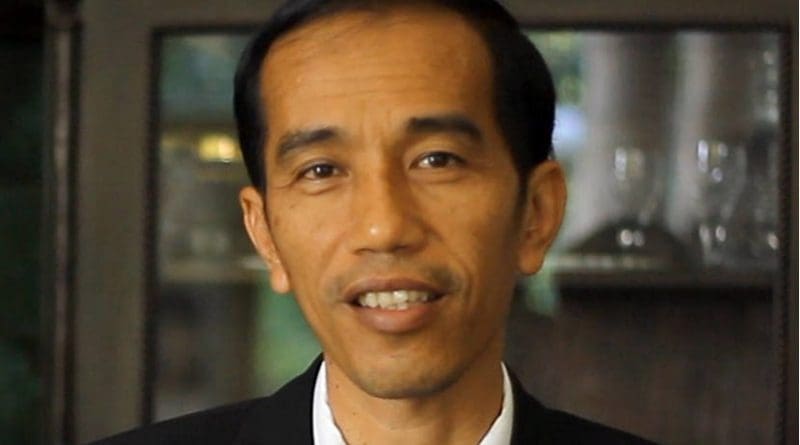Indonesia: Online Battle For Hearts And Minds As Presidential Election Looms
By BenarNews
By Ahmad Syamsudin
Indonesia’s upcoming presidential election will not only be fought through rallies on the campaign trail but in cyberspace, where online influencers will play a role in helping shape the outcome, analysts told BenarNews.
With close to 150 million Indonesians having access to the Internet, politicians are increasingly using social media to get their message across to the masses. In recent years, electoral campaigning in Indonesia has featured so-called “buzzers” – people with thousands of followers on social media – who are paid to post content in support of politicians, experts said.
“Social media influencers play an important role in advertising in the digital era when the influence of traditional media, such as television and newspapers as well as formal institutions is diminishing,” Mohammad Rinaldi Camil, a researcher at the Center of Innovation Policy and Governance, told BenarNews
“At the same time, peer-to-peer influence is on the rise.”
Mohammad said a study by him found that some buzzers were paid between 50,000 rupiah (U.S. $3.50) to 250,000 per post on Twitter.
President Joko “Jokowi” Widodo is seeking a second five-year term in a presidential election scheduled for April 17, 2019. His opponent in the campaign is Prabowo Subianto, whom he defeated narrowly in the 2014 polls.
Many months before Election Day, a hashtag war between supporters of both candidates is already being waged on Twitter and Facebook.
Jokowi’s opponents use the hashtag #2019gantipresiden (#2019changepresident) to drum up support for Prabowo, a 66-year-old former army special forces commander who has been linked to alleged human rights abuses. Prabowo has denied those allegations.
Indonesian President Joko
The president’s supporters have responded with #diasibukkerja (#heisbusyworking) and #2019tetapjokowi (#2019stilljokowi).
Mardani Ali Sera, an opposition politician who popularized #2019changepresident, said the movement which started on Twitter was growing “massively” both online and offline.
“The hashtag has dominated conversations on social media for three months. So the brand is very strong,” said Mardani, a politician from the Muslim-based Prosperous Justice Party.
The movement’s growth has been organic, he said.
“Surveys have shown that conversations on social media are an indicator of public sentiment in the real world,” Mardani said.
About 143 million Indonesians had access to the Internet in 2017, according to the Association of Indonesian Internet Providers.
A recent study by We Are Social, a global advertising agency, found that Indonesians with access to the Internet spend more than eight hours a day online, including 3.5 hours on social media.
Political advertising on social media has become an industry involving huge amounts of money, according to social media expert Nukman Luthfi.
“Young people nowadays spend less time watching TV or reading papers. For that reason money that was usually spent on TV and newspaper advertising has shifted to social media,” he told BenarNews.
Guilty of spreading misinformation
Netizens don’t just share facts about their favorite politicians, but also misinformation, or fake news.
Earlier this year, a court in Pekanbaru on Sumatra island sentenced Muhammad Abdullah Harsono to two years and eight months in prison after finding him guilty of spreading misinformation on Facebook that could cause social and religious discord.
Police said Muhammad was among four people arrested last year on suspicion of involvement in an online fake-news factory called Saracen. Authorities did not identify Saracen’s paymasters.
But the group received millions of rupiah as payment after spreading misinformation and hate speech against Jokowi’s government, police said without elaborating.
In 2016 and 2017, large protests by Muslims against Jakarta’s Christian governor, Basuki “Ahok” Tjahaja Purnama, began with a Facebook post suggesting that he had insulted the Quran for remarks he made during a meeting with residents in Kepulauan Seribu district.
An edited video posted on Facebook made it appear that Ahok had said the Quran deceived people while he was talking about how his opponents used a verse in the scripture to discourage people from voting for him.
Ahok lost the Jakarta gubernatorial election to former Education Minister Anies Baswedan, who courted support from the Islamic Defenders Front (FPI) and other conservative Muslim groups despite his liberal credentials.
Ahok soon after was sentenced to two years in prison for blasphemy. He is due for release in January.
Social media expert Nukman said Jokowi’s decision to pick Ma’ruf Amin, a senior Muslim cleric known for conservative views on LGBT and other issues, as his running mate could pacify his opponents who have tried to paint him as being not Islamic enough.
“Using the religious card to attack Jokowi won’t sell anymore,” he said. “So I think the conversations online in the lead-up to the election will focus on the economy and human rights to some extent.”

